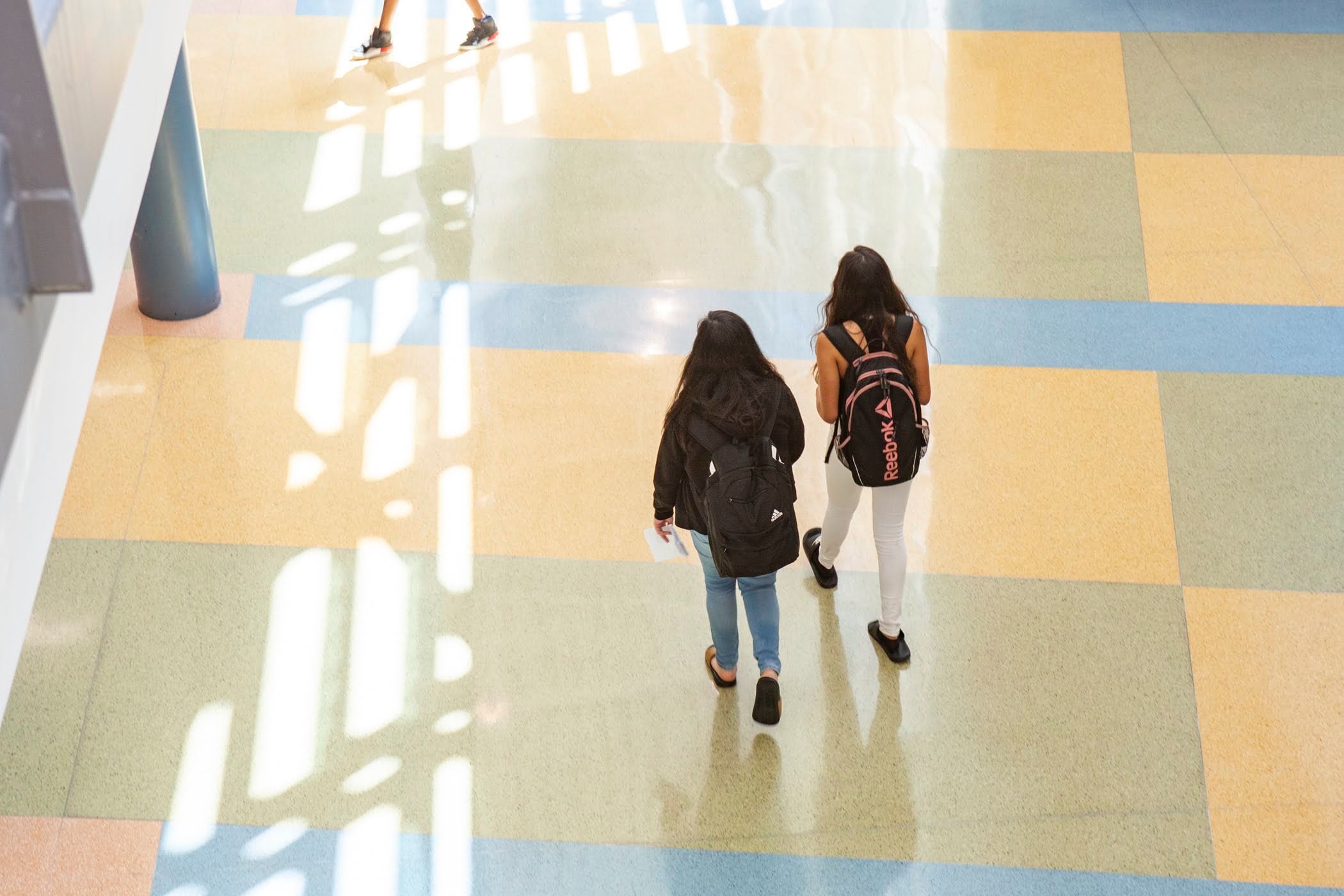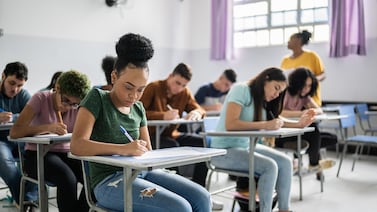Sign up for Chalkbeat Chicago’s free daily newsletter to keep up with the latest education news.
Chicago Public Schools plans to do away with a decade-old system in which school funding was largely based on student enrollment. Instead, starting next year, each school will get a set number of staff and additional funding based on need.
The change, announced Thursday at a Chicago Board of Education meeting, is part of a revamp of the district’s funding formula and delivers on a promise Mayor Brandon Johnson made during his mayoral campaign to end student-based budgeting.
The district had already started to move away from a student-based approach in the previous two budget cycles, as it funded more positions – such as social workers – centrally. The current formula also accounts for student needs, such as how many students with disabilities need additional support.
Under the new formula, every school will have certain guaranteed staff, including an assistant principal, a counselor, and core classroom teachers. It would guarantee “a baseline level of resources for every school, regardless of enrollment,” then add more based on need, according to a district presentation.
Ralph Martire, executive director of the Center for Tax and Budget Accountability, welcomed the move away from student-based budgeting, calling it an inequitable approach “because not every student has the same needs and doesn’t generate the same resources.”
It will, however, likely be challenging for the district to roll out a new funding model when schools already have “a certain funding expectation” they rely on to pay for contracts or programming. The district should try to hold schools harmless, meaning schools shouldn’t lose money under the new formula, Martire said.
In 2013, Chicago Public Schools switched from using a budgeting system that funded a set number of staff at each school to one that allocated money per student. As schools lost enrollment, their budgets often tightened. But budgets have also grown over the past few years with the influx of $2.4 billion, so far, in federal COVID relief funding.
The district’s enrollment declined significantly over the past decade, losing more than 75,000 students since 2013. Enrollment stabilized this year with about 323,000 students enrolled. At the same time, the number of employees has grown. District staffing data shows CPS employed roughly 43,500 people as of the end December, up from around 37,000 as of December 2018.
District officials and school board members did not immediately share more details about the formula. It remains unclear exactly how funding will be allocated to campuses or how much autonomy a principal and Local School Council would have over their school’s budgets.
Schools will also receive discretionary funding, but it is not clear how that will be calculated.
A school’s need will be determined by something called the “opportunity index,” which considers several factors, such as the percentage of students with disabilities, those who are homeless, those learning English as a new language, those who come from low-income families, the number of teachers a school was able to retain, and whether a school is segregated by race or ethnicity. The index also considers data about the surrounding community and how a school has been funded historically.
“Maybe it’s just more striking because I’ve been here for a while now, but this is a major shift and it’s important,” said Elizabeth Todd-Breland, vice president of the Chicago Board of Education.
The funding formula shift comes as the district is also facing a projected $391 million deficit, as federal COVID relief funding runs out. That gap must be filled by revenue that has not yet been identified, Mike Sitkowski, the district’s budget director, told the board Thursday.
District officials are projecting an additional roughly $25 million in K-12 funding next year under the state’s Evidence-Based Funding formula, or EBF, which makes up the largest portion of state funding for CPS. That would bring total EBF funding for Chicago to nearly $1.8 billion. State officials have gradually provided more funding to Illinois school districts under the formula, but CPS officials are advocating for a larger increase, arguing that the district is still owed more than $1 billion.
When accounting for all state funding, Illinois gave Chicago Public Schools nearly $2.5 billion for this current fiscal year, up from $1.5 billion in 2017, the year before the state reformed how it was funding school districts.
Even with the budget challenges, the district is working to keep several of the new investments it made using federal COVID dollars, including high-dosage tutoring, additional counselors, and extended learning time, such as the expansion of summer school, as well as before- and after-school programming.
Officials defended those investments by highlighting a recent study that showed Chicago’s reading scores have bounced back from the pandemic at a greater rate than most big school districts.
“It should not take a crisis for us to fully fund our schools,” Bogdana Chkoumbova, the district’s chief education officer, said during her presentation Thursday.
In an interview earlier this week, CPS CEO Pedro Martinez said the district may also have to make “hard decisions” this year. That could include pausing “critical” repairs for buildings, he said.
Becky Vevea contributed.
Reema Amin is a reporter covering Chicago Public Schools. Contact Reema at ramin@chalkbeat.org.







